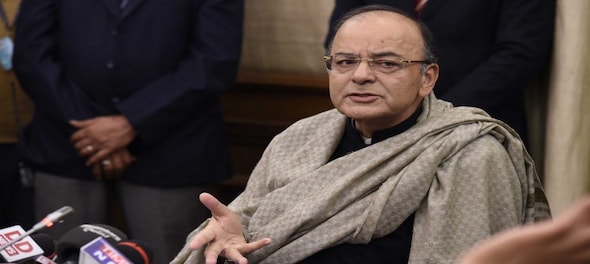
The 31st meeting of the GST Council was held on last Saturday in New Delhi and based on the crucial decisions taken in the meeting, it goes without saying that the GST structure in India has started showing signs of moving towards a maturity phase. In this new phase, the government has started to concentrate on providing solutions to the issues and problems being faced by the industry.
Crucial Aspects Of The 31st GST Council Meeting
The signs of maturity in the Indian GST structure seems to be flowing from the key decisions taken at the aforementioned GST council meeting. A brief summary of key decisions has been entailed below:
Gradual outgo of 28% GST rate slab: With the GST revenue trends stabilising in the recent months (including lowering of compensation to States), the Government has started moving the goods of common use (except luxury and sin goods) towards lower GST rate slabs. Going forward, this would result in standardising the GST structure with a better ratio of taxpayer's compliance, while ensuring the minimum tax burden on the end consumers.
Consideration of stakeholder's representations: The Council has decided to provide clarifications on various tax issues being represented by the business community, in order to avoid unnecessary litigation in future. Such clarifications include questions of tax applicability as well as applicable tax rates. The government seems to have implemented its learnings from the GST introduction phase. This also reflects the stakeholder inclusiveness approach currently being followed by the government.
Extension of due dates: While the due date for filing GST Annual Return (financial year 2017-18) has been proposed to be extended to June 30, 2019, introduction of the new return filling system (on mandatory basis) has been extended to July 1, 2019. Now, extension of timelines near the expiry of due dates seem to be a thing of the past.
Addressal of industry's practical problems: Certain practical issues being faced by the industry have been addressed, including the proposal to simplify the GST refund filling process. Now, the copies of necessary documents would be required to be filed online, without requiring any interface with the GST Department. Further, as per the proposal, a single authority would be engaged in the disbursement of sanctioned refunds, irrespective of sanction of such refund by the Central or State authorities. This would result in reducing the timeline for obtaining GST refunds and hence, would remove the major hindrance of blocked working capital for the businesses.
Increase in timeline for input tax credit (ITC) availment (2017-18): The long-standing demand of the industry to extend the due date for availing ITC on invoices pertaining to the financial year 2017-18 has also been considered and proposal has been made to extend the timeline to March 31, 2019. With this, an attempt has been made to not deprive the businesses of their legitimate ITC claim benefit.
Creation of centralised appellate advance ruling authority (AAAR): Proposal to create the centralised AAAR to rule on cases involving divergent views of two State advance ruling authorities on the same issue reflects the seriousness of the government to create an ambience of certainty among the business community.
Ensuring better compliance ratio: In the current phase, government seems to be moving towards the target of ensuring better compliance ratio and its efforts towards encouraging the filing of GST returns is its evidence. Proposal has been made to waive the late-fee for filing returns (GSTR-1, GSTR-3B and GSTR-4) between the period of December 22, 2018 and March 31, 2019, for the period from July, 2017 to September, 2018.
Anti-evasion measures: In line with the recent crackdown on numerous tax evasion practices being followed by certain persons and subsequent recoveries made thereon, it has been proposed to restrict the generation of e-way bills by the taxpayers who have not filed GST returns for two consecutive tax periods.
The Way Forward
With the policy decisions in GST Council meeting hitting the right chords with the industry demands and expectations, the government should now shift its focus towards getting better figures of the number of taxpayers complying with GST provisions and further streamlining of GST procedures. Treading on this path, there are still miles to go before GST structure is actually suited to perfection for the Indian economy.
Anita Rastogi is Partner -GST and Indirect Tax , PwC India. Rohit Gupta, Associate, PwC, GST and Indirect Tax also contributed for this article.
First Published: Dec 27, 2018 9:34 AM IST
Check out our in-depth Market Coverage, Business News & get real-time Stock Market Updates on CNBC-TV18. Also, Watch our channels CNBC-TV18, CNBC Awaaz and CNBC Bajar Live on-the-go!


Stampede-like situation disrupts Rahul Gandhi, Akhilesh Yadav's joint rally in Uttar Pradesh
May 19, 2024 4:26 PM
Ladakh Lok Sabha election: With Independent candidate's entry, it's now a 3-way contest for BJP and Congress
May 19, 2024 4:01 PM

